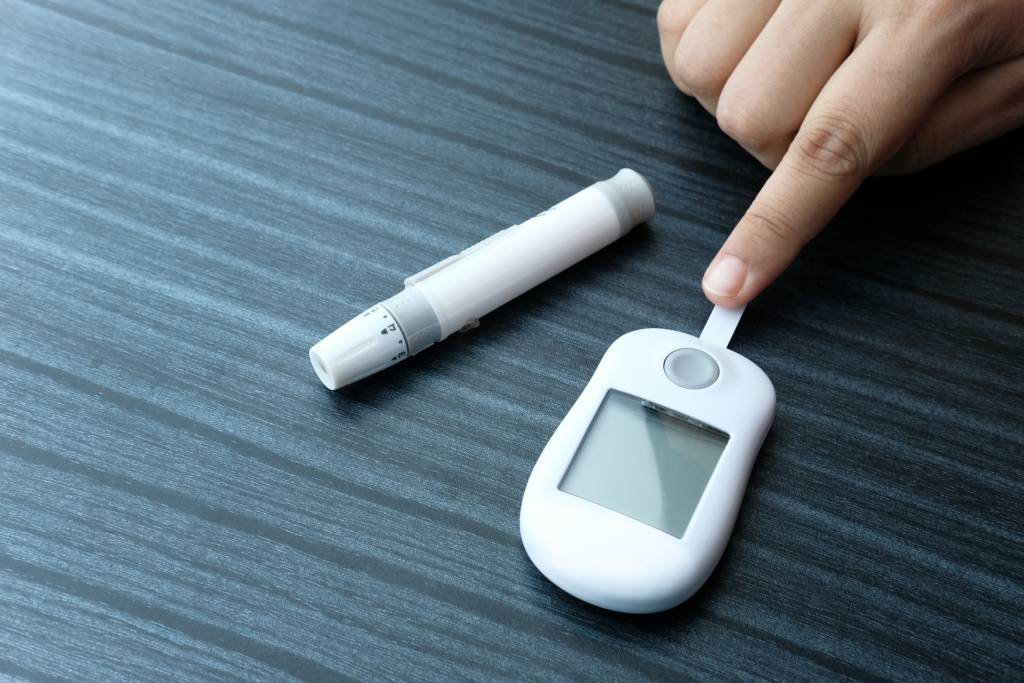Type 2 diabetes is currently one of the most common ailments affecting individuals around the world. In 2017, the CDC1 reported that over 100 million Americans are living with diabetes, while over 84 million more people are expected to see their prediabetes turn into type 2 diabetes within the next 5 years.
Though the numbers are only increasing year after year for this chronic medical condition, there is hope. The more informed you are about type 2 diabetes and potential treatment options, the better you can manage this ailment and its impact on your life. Here are a few tips to help you stay in control of type 2 diabetes.
 Turn to Common Diabetes Treatment Options
Turn to Common Diabetes Treatment Options
As science and the world of medical research learn more about type 2 diabetes, there are increasing options for those in need of treatment and symptom management. Thanks to these treatment options, you may be able to manage type 2 diabetes symptoms with a few lifestyle or medical changes. The following are a few ideas to treat diabetes:
1. Make a Few Dietary Changes
A reduction in sweets, fats, refined carbohydrates, and animal products, along with an increase of fiber, is typically recommended. It’s also best to boost your consumption of whole grains, fruits, and vegetables.
2. Monitor Your Blood Sugar Regularly
Checking your blood sugar at regular intervals can help you learn what types of food to avoid. You are also likely to notice unusual blood sugar changes in response to alcohol, tobacco, certain medications, and being sick. Due to this, it is best for diabetics to avoid alcohol and tobacco. Be sure to also always report any potential medication issues.
3. Start Exercising Regularly
A regular exercise routine that includes 30 minutes of physical activity at least five times a week can make a big difference. Alternating between aerobic exercises and resistance training usually offers the best results.
For example, you could take a 30-minute walk three to four times per week, and then add in yoga once or twice weekly. Of course, exercising daily or working out for more than 30 minutes per day may make you feel even better. Be sure to consult with your doctor about what type of exercise is right for you.
4. Try Prescription Medications
There are numerous medication options for type 2 diabetes, and your doctor will choose the most appropriate one based on several factors. Some people will need insulin therapy injections such as Apidra, Levemir or Novolog.
Some of the most common prescription classes include:
- Metformin – Glumetza, Glucophage
- Meglitinides – Starlix, Prandin
- Sulfonylureas – DiaBeta, Glucotrol
- Thiazolidinediones – Actos, Avandia
- GLP-1 receptor agonists – Victoza, Byetta
- DPP-4 inhibitors – Tradjenta, Januvia
- SGLT2 inhibitors – Farxiga, Invokana
5. Consider Non-Medical Alternative Treatments
Your doctor might recommend bariatric surgery if you are diabetic and have a body mass index higher than 35. Nearly 90 percent of diabetics who receive this procedure will benefit from the return of normal blood sugar levels, the American Society for Metabolic & Bariatric Surgery2 reports. However, osteoporosis, nutritional deficiencies, and even death can result from bariatric surgery, so undergoing this method is something you need to carefully consider.
There are several non-medical alternative treatments, including ginseng, chromium, omega-3, and starch blockers, that many diabetics have tried. Scientific evidence, according to Prevention3, is low for most of these options, but anecdotal evidence suggests good results in some cases.
Know the Prognosis for Type 2 Diabetes Sufferers
Type 2 diabetes is generally a lifelong chronic condition. However, there is some evidence that people who have a mild case or are very dedicated to changing their lifestyle can partially or fully reverse diabetes. For example, a six-month study led by the Second University of Naples4 involving exercise and dietary changes led to the partial remission of 67% of diabetic participants. In other words, a type 2 diabetes diagnosis does not mean you have to suffer from this condition for the rest of your life.
Researchers are currently working on creating more effective forms of diabetes medication. At Duke University5, there is hope that the combination of a biopolymer molecule and GLP1 will allow diabetics to get an insulin shot only once every two weeks.
Even more promising is the possibility of a type 2 diabetes cure from scientists at the University of California, San Diego6. The West Coast-based team announced earlier this year that they have developed a medication that reverses symptoms and causes no ill side effects in mice. If this same medication works for humans, it may enable the reversal of type 2 diabetes worldwide.
Weight loss drug Lorcaserin may also be a beneficial treatment in the future. A team of scientists from three universities discovered that Lorcaserin helps the brain do a better job of keeping blood sugar levels in line.
As you can see, the prognosis for type 2 diabetes is constantly changing due to exciting new research. Currently, following your doctor’s treatment plan, improving your diet, and exercising daily will give you the best chance at avoiding diabetes complications such as neuropathy, glaucoma, stroke, kidney disease, gastroparesis, and skin problems.
Like anything, it’s always a good idea to be aware of the latest research. We recommend comparing at least 3 or 4 options before making a final decision. Doing a search online is typically the quickest, most thorough way to discover all the pros and cons you need to keep in mind.


